
Dhermi Region: Albania's Coastal Gem
Nestled between the Ionian Sea and the dramatic cliffs of the Ceraunian Mountains, the Dhermi region is a paradise for beach lovers and adventure seekers alike. This picturesque coastal area in southern Albania boasts crystal-clear waters, pristine beaches, and a charming blend of traditional and modern influences. From the moment you arrive, you'll be enchanted by the stunning natural beauty and warm hospitality of the locals. Dhermi village, with its whitewashed houses and narrow cobblestone streets, offers a glimpse into the rich cultural heritage of the region. Take a leisurely stroll through the village and discover ancient churches, such as the Church of Saint Mary, which dates back to the 12th century. The village also hosts various festivals and events throughout the year, providing a unique opportunity to experience local traditions and customs. The beaches in Dhermi are some of the most beautiful in the Mediterranean. Dhermi Beach, with its soft white sand and turquoise waters, is perfect for sunbathing and swimming. For a more secluded experience, head to Drymades Beach, where you can relax in the shade of olive trees or explore the rocky coastline. Water sports enthusiasts will find plenty to do here, from snorkeling and diving to windsurfing and kayaking. Beyond the beaches, the Dhermi region offers numerous hiking trails that lead to breathtaking viewpoints and hidden gems. The Llogara Pass, a mountain pass that connects the region to the rest of Albania, provides stunning panoramic views of the coastline and the surrounding peaks. Whether you're exploring on foot or by car, the Dhermi region promises an unforgettable adventure.
Local tips in Dhermi Region
- Visit during the shoulder seasons (May-June or September-October) to avoid crowds and enjoy milder weather.
- Bring cash, as many small establishments in Dhermi do not accept credit cards.
- Rent a car to explore nearby attractions and hidden beaches at your own pace.
- Try the local seafood dishes, particularly the freshly caught fish and traditional Albanian specialties.
- Pack comfortable walking shoes for exploring the village and hiking trails.
Dhermi Region: Albania's Coastal Gem
Nestled between the Ionian Sea and the dramatic cliffs of the Ceraunian Mountains, the Dhermi region is a paradise for beach lovers and adventure seekers alike. This picturesque coastal area in southern Albania boasts crystal-clear waters, pristine beaches, and a charming blend of traditional and modern influences. From the moment you arrive, you'll be enchanted by the stunning natural beauty and warm hospitality of the locals. Dhermi village, with its whitewashed houses and narrow cobblestone streets, offers a glimpse into the rich cultural heritage of the region. Take a leisurely stroll through the village and discover ancient churches, such as the Church of Saint Mary, which dates back to the 12th century. The village also hosts various festivals and events throughout the year, providing a unique opportunity to experience local traditions and customs. The beaches in Dhermi are some of the most beautiful in the Mediterranean. Dhermi Beach, with its soft white sand and turquoise waters, is perfect for sunbathing and swimming. For a more secluded experience, head to Drymades Beach, where you can relax in the shade of olive trees or explore the rocky coastline. Water sports enthusiasts will find plenty to do here, from snorkeling and diving to windsurfing and kayaking. Beyond the beaches, the Dhermi region offers numerous hiking trails that lead to breathtaking viewpoints and hidden gems. The Llogara Pass, a mountain pass that connects the region to the rest of Albania, provides stunning panoramic views of the coastline and the surrounding peaks. Whether you're exploring on foot or by car, the Dhermi region promises an unforgettable adventure.
When is the best time to go to Dhermi Region?
Iconic landmarks you can’t miss
Zoe Hora
Experience refined comfort and tranquility at Zoe Hora in Dhërmi, Albania, where traditional charm meets modern luxury with stunning Ionian Sea views.
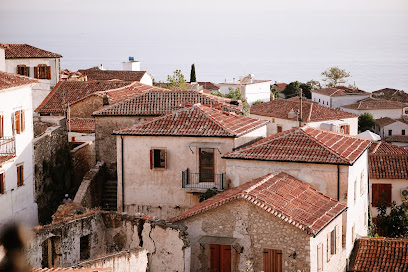
Drymades Beach
Discover Drymades Beach: turquoise waters, golden sands, and vibrant Albanian Riviera charm. Perfect for relaxation, adventure, and cultural exploration.
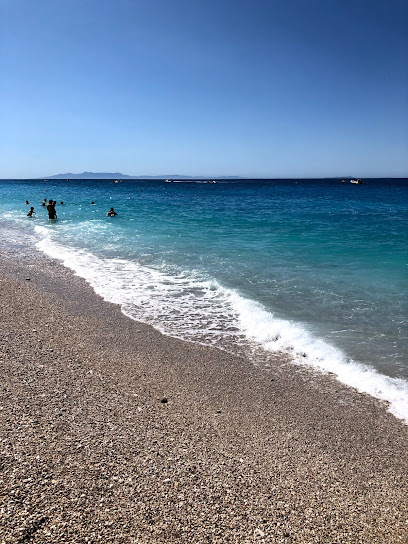
Royal Blue Hotel
Experience coastal bliss at Royal Blue Hotel in Dhërmi, Albania. Enjoy sea views, private beach access, and a relaxing Mediterranean escape.
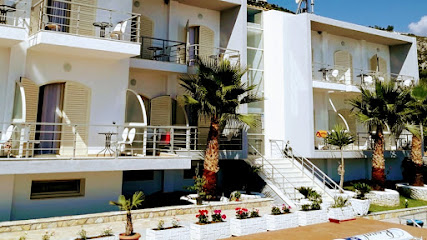
Elysium Hotel Dhërmi
Experience luxury and tranquility at Elysium Hotel Dhërmi, a 5-star coastal retreat with stunning sea views and exceptional service.
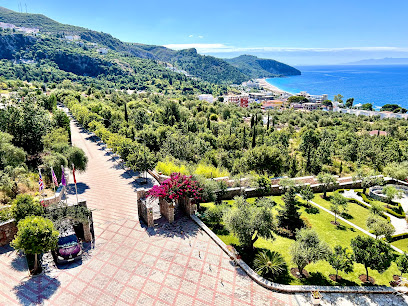
Empire Beach Resort
Experience luxury and relaxation at Empire Beach Resort in Dhërmi, Albania, with stunning Ionian Sea views and a private beach.

La Brisa Boutique Hotel
Experience coastal bliss at La Brisa Boutique Hotel in Dhërmi, Albania. Modern comfort meets stunning sea views on the Albanian Riviera.
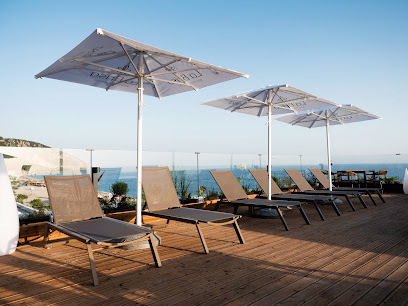
Splendor Hotel & Spa
Experience luxury and tranquility at Splendor Hotel & Spa in Dhërmi, Albania, with stunning views, private beach access, and exceptional service.
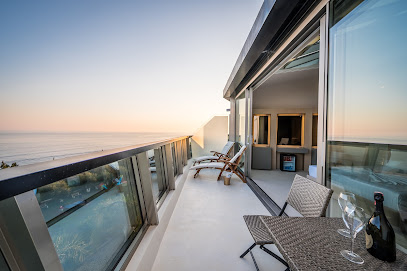
Morina Palace
Experience coastal bliss at Morina Palace in Palasë, Albania, with beachfront access, comfortable accommodations, and a range of activities.

Perivolos Apartments
Relaxing apartments in Dhërmi near the beach with a pool, bar, and comfortable rooms offering Ionian Sea views and Albanian Riviera exploration.
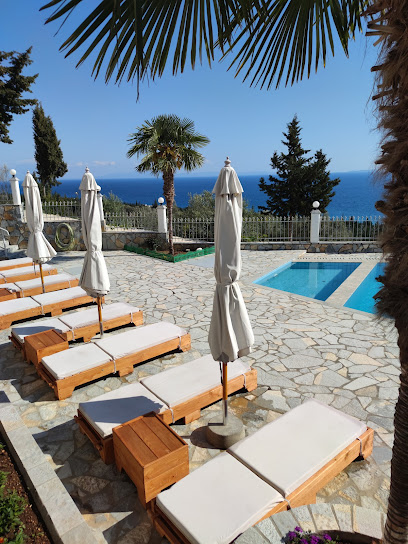
Hotel Sofo Dhermi
Experience comfort and coastal beauty at Hotel Sofo Dhermi, your gateway to the Albanian Riviera's stunning beaches and charming villages.
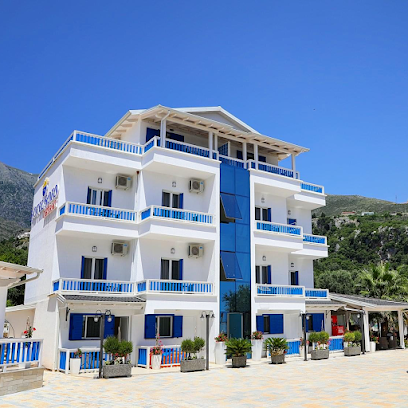
Augustus Hotel
Experience coastal charm at Augustus Hotel in Dhërmi: comfortable rooms, stunning sea views, and a perfect location for exploring the Albanian Riviera.

Golden View Residence
Experience comfort and stunning views at Golden View Residence, your ideal base for exploring the Albanian Riviera in Dhermi.
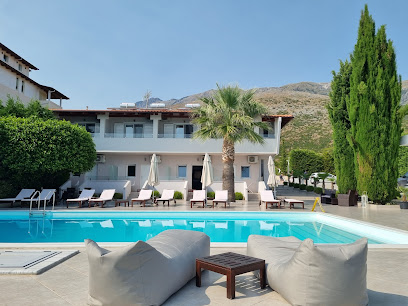
Bia Bungalows
Experience a relaxing coastal getaway at Bia Bungalows in Dhërmi, Albania, with comfortable accommodations and delicious seafood.
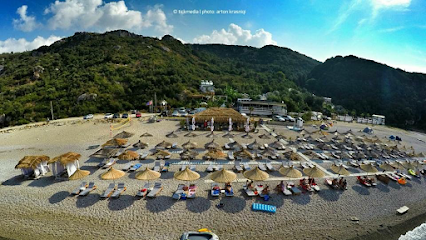
Olives Residence
Experience the beauty of Dhërmi at Olives Residence, a tranquil resort hotel offering stunning sea views and easy access to the best of Albania's Riviera.

Abonora Drymades
Experience coastal luxury at Abonora Drymades in Dhërmi, Albania: pristine beaches, stunning views, and vibrant local culture await.

Unmissable attractions to see
Panorama Llogara
Experience the stunning views of the Albanian coast at Panorama Llogara, a breathtaking observation deck in Llogara National Park.
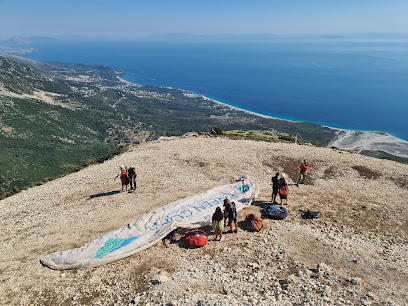
Palermo Beach
Explore the stunning Palermo Beach in Himarë, Albania, where crystal-clear waters meet golden sands for the perfect seaside escape.
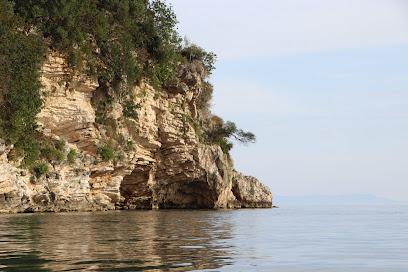
Qeparo Beach
Explore the unspoiled beauty of Qeparo Beach, a serene destination on the Albanian Riviera offering stunning views and a peaceful retreat.
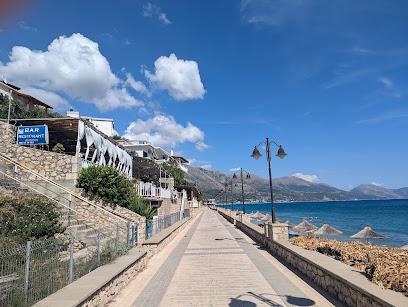
Lukova Beach
Discover Lukova Beach: a serene escape on the Albanian Riviera with turquoise waters, golden sands, and stunning natural beauty. Perfect for relaxation and exploration.
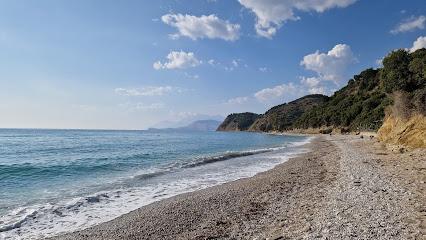
Sunset Viewpoint
Experience breathtaking sunsets and panoramic views from the hilltop village of Afionas, a Corfu paradise.
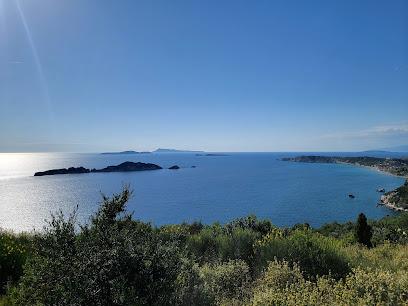
Mount Çika
Experience the breathtaking beauty of Mount Çika in Albania, a paradise for hikers and nature lovers with stunning views and rich biodiversity.
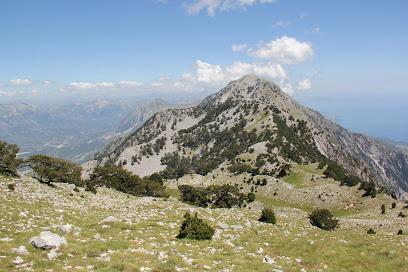
Monastery of Saint Nicholas
Discover the serene Monastery of Saint Nicholas in Delvinë, Albania, a historic site offering spiritual reflection and cultural exploration.
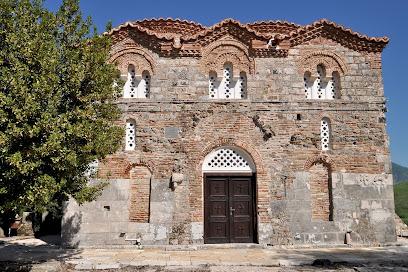
Gjiri i Megucit
Discover Gjiri i Megucit: a serene Albanian coastal haven with turquoise waters, golden sands, and breathtaking natural beauty. Perfect for relaxation and adventure.
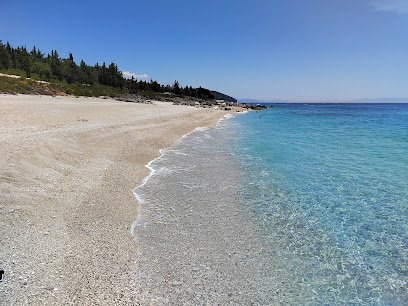
Krorëza Bay/ Boat trip & BBQ
Explore the stunning Krorëza Bay with unforgettable boat tours and delightful BBQs along the beautiful Albanian coastline.
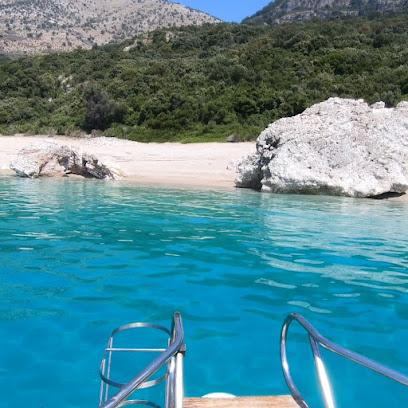
The Mill's Trail Dhërmi
Discover Dhërmi's hidden history on the Mill's Trail, a scenic walk through nature and time connecting the village to the sea.
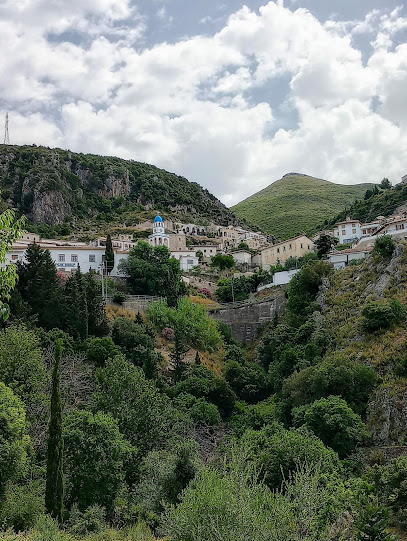
Church of the Intercessor
Discover the serene beauty and rich Orthodox heritage of the Church of the Intercessor in Labovë e Madhe, Albania. A historical and spiritual landmark.
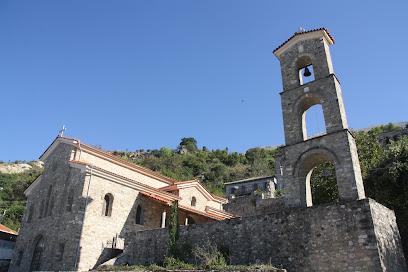
Dhërmi Boats
Discover hidden coves and pristine beaches along the Albanian Riviera with unforgettable boat tours from Dhërmi. Book your adventure today!
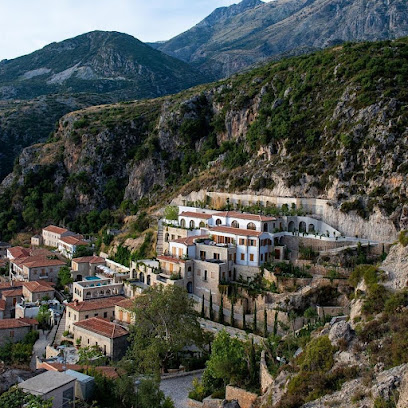
Plazhi i Drimadhës
Experience the breathtaking beauty of Plazhi i Drimadhës, a serene beach paradise perfect for relaxation and adventure in Albania.
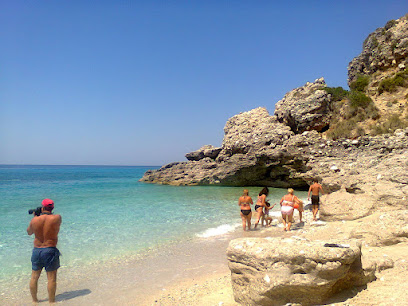
Essential places to dine
Luciano
Experience authentic Italian cuisine paired with exquisite cocktails at Luciano in picturesque Dhërmi, Albania.
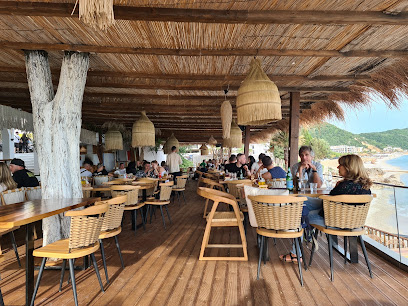
Vela e Bardhe
Experience exceptional Mediterranean cuisine and vibrant beachside relaxation at Vela e Bardhe in Dhermi, Albania.
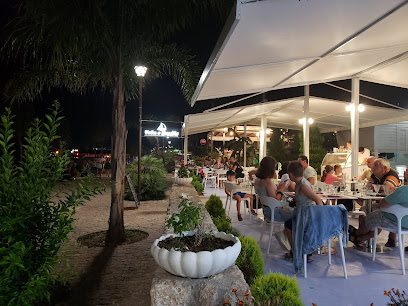
Diego Bar Pizzeri Restorant
Experience mouthwatering pizzas and warm hospitality at Diego Bar Pizzeri Restorant in picturesque Dhërmi, Albania.
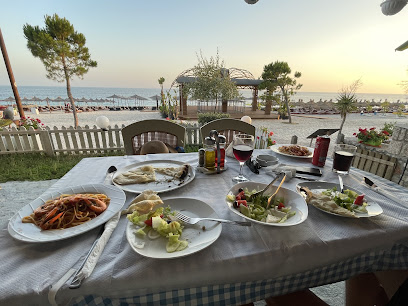
Restaurant Prishtina
Experience authentic Albanian flavors at Restaurant Prishtina in Dhërmi - where culinary tradition meets stunning coastal views.
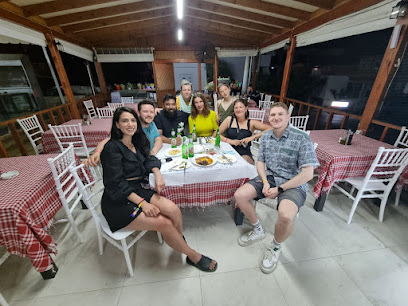
Angelos Souvlaki & Grill
Discover the best fast food experience at Angelos Souvlaki & Grill in Dhërmi, Albania, where authentic flavors meet coastal charm.
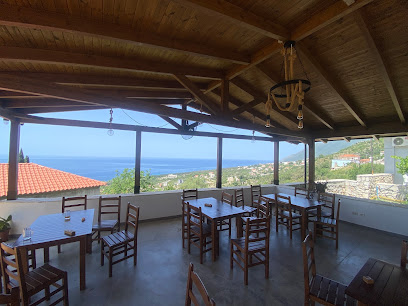
Pajti Bar Restorant
Discover authentic Albanian flavors at Pajti Bar Restorant in Dhërmi - where fresh seafood meets stunning coastal views.
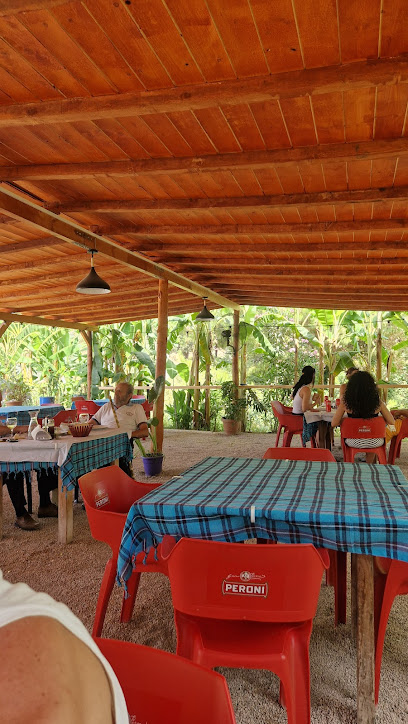
Artur Restaurant Dhermi
Discover Artur Restaurant in Dhermi for an authentic taste of Albanian cuisine with breathtaking coastal views.
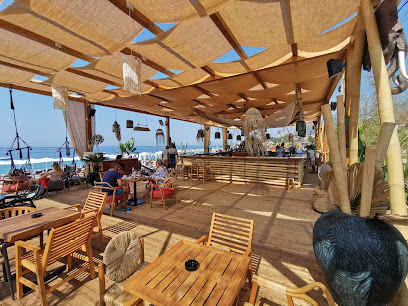
Azul by Havana
Experience exquisite dining at Azul by Havana in Dhërmi – where breathtaking views meet exceptional Albanian cuisine.
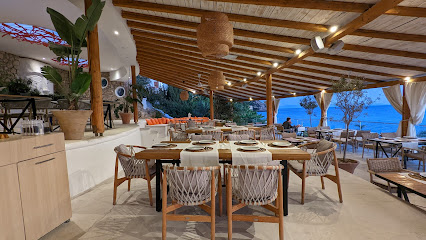
Don Mare
Savor exquisite Mediterranean cuisine at Don Mare in Dhërmi, where every meal comes with breathtaking views of the Albanian coast.
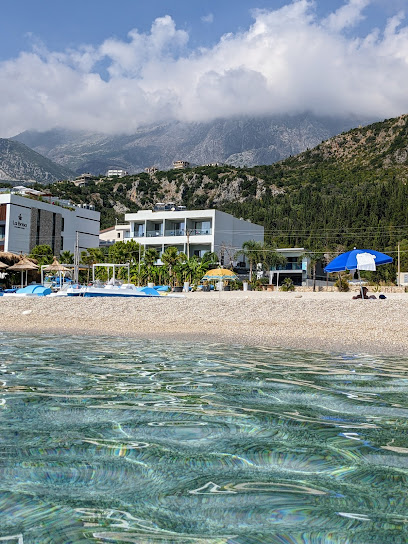
Summer Dream Restaurant terrace
Experience exquisite Mediterranean dining at Summer Dream Restaurant with breathtaking views on Drymardes beach in Dhërmi, Albania.
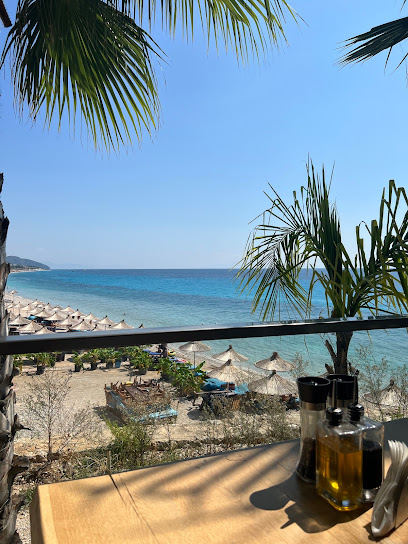
Piratet 1
Discover authentic Albanian flavors at Piratet 1 in Dhërmi – where culinary excellence meets breathtaking Adriatic views.
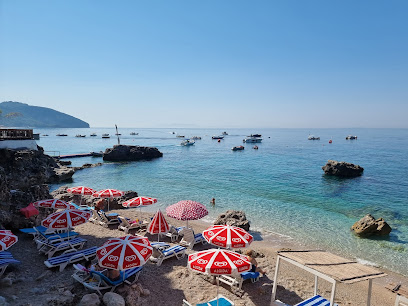
olio
Discover Olio in Dhërmi: where Italian flavors meet sushi artistry amidst stunning coastal views.
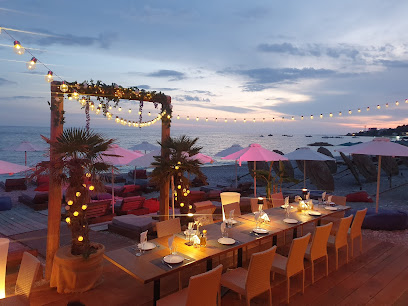
Aloni Restaurant
Experience authentic Albanian cuisine with stunning views at Aloni Restaurant in beautiful Dhërmi.
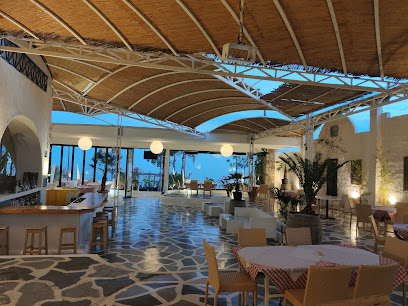
Hotel Platinium
Experience exquisite comfort and delectable pizzas at Hotel Platinium in Dhermi - your perfect getaway on Albania's stunning coastline.
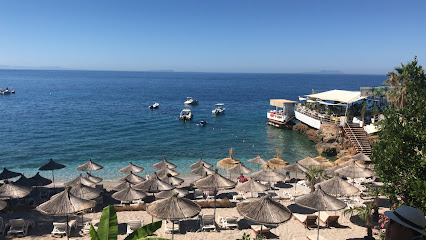
Fast food ilia
Experience delicious fast food in Dhërmi at Fast Food Ilia - where flavor meets convenience by the beautiful Albanian coast.
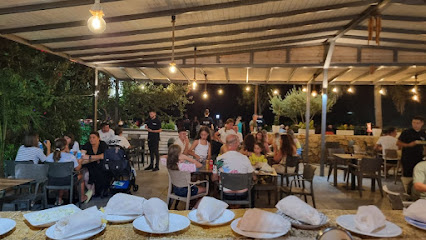
Markets, malls and hidden boutiques
Drymades Beach
Experience the stunning beauty and vibrant atmosphere of Drymades Beach, a hidden gem on the Albanian Riviera, perfect for relaxation and adventure.
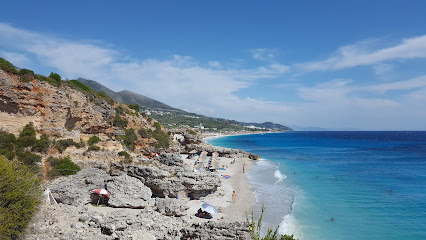
Vela e Bardhe
Discover Vela e Bardhe, a premier Mediterranean beach club and restaurant in Dhermi, Albania, offering exquisite cuisine and stunning coastal views.
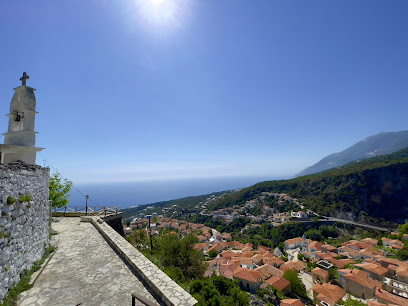
Havana Beach Club
Discover the vibrant atmosphere of Havana Beach Club, where stunning views, delicious cuisine, and lively entertainment await you in Dhërmi, Albania.
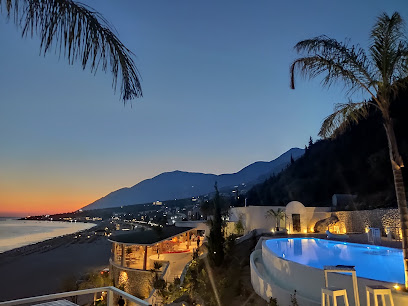
Royal Blue Hotel
Discover the Royal Blue Hotel: your gateway to relaxation and adventure on Dhermi Beach, Albania's stunning coastline.
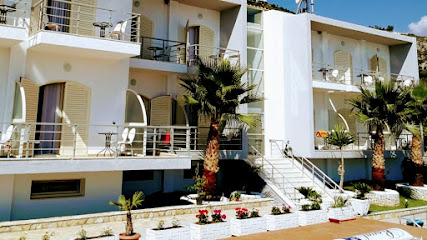
Elysium Hotel Dhërmi
Discover the luxurious Elysium Hotel Dhërmi, where stunning sea views and exceptional hospitality create an unforgettable Albanian retreat.
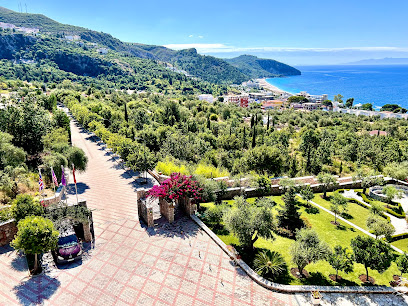
Splendor Hotel & Spa
Discover the luxurious escape at Splendor Hotel & Spa, where stunning views and exceptional amenities create the perfect Albanian getaway.
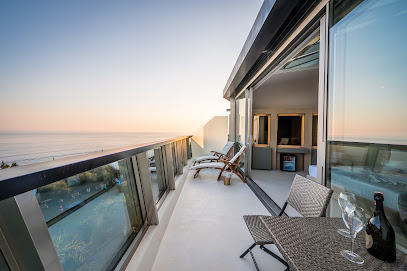
Perivolos Apartments
Experience tranquility at Perivolos Apartments, a serene resort hotel in Dhërmi, Albania, perfect for relaxation and exploration of the stunning Ionian coast.
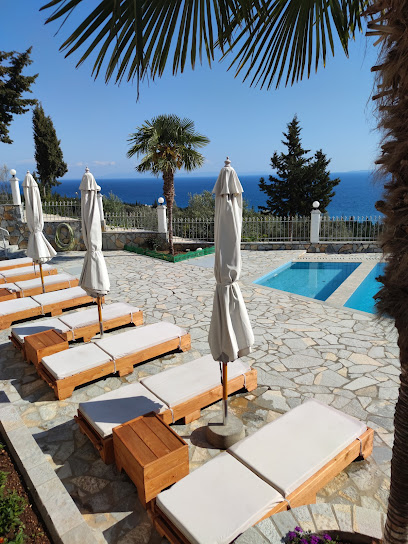
Bia Bungalows
Experience the serene beauty of Bia Bungalows, where beachfront relaxation meets exquisite seafood dining in the heart of Dhërmi, Albania.
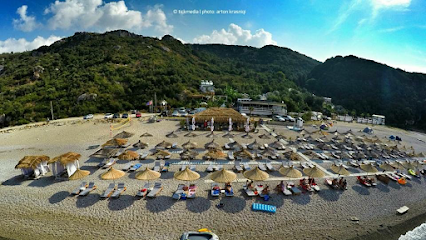
Olives Residence
Discover the tranquil beauty of Olives Residence in Dhërmi, a peaceful resort hotel on the stunning Albanian Riviera, perfect for relaxation and adventure.

Blue Boutique Hotel
Experience the serene beauty and warm hospitality of Blue Boutique Hotel in the enchanting town of Dhërmi, Albania.
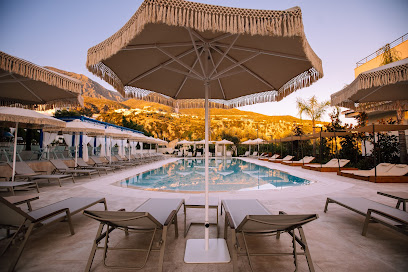
Hotel Jon
Discover tranquility and comfort at Hotel Jon, your perfect coastal escape in Dhërmi, Albania.
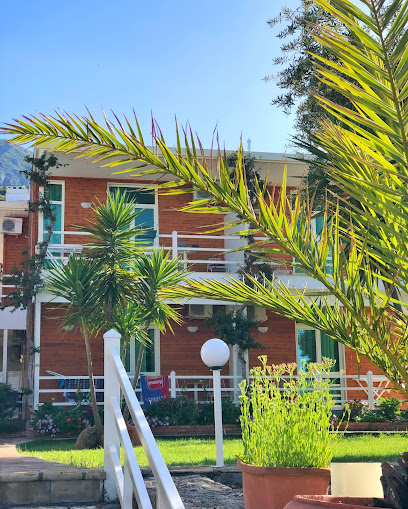
Market Neco
Explore the flavors of Albania at Market Neco in Dhërmi, where local produce and artisanal goods await every traveler.
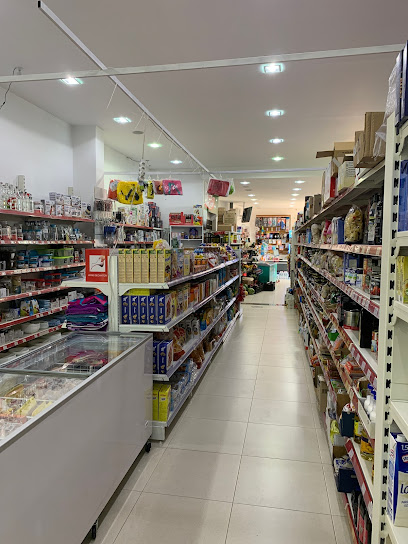
Patio Mare
Discover the serene beauty of Patio Mare in Dhërmi, Albania, where stunning beaches meet local hospitality for an unforgettable getaway.
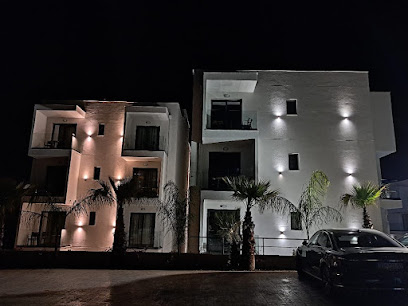
Market Martino
Explore the flavors of Albania at Market Martino, your local grocery store in Dhërmi offering fresh produce and local delicacies.
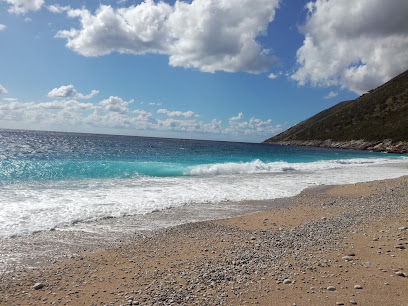
Drymades Bungalows
Experience the serene beauty of Drymades Bungalows, a perfect blend of nature and comfort on Albania's stunning Adriatic coast.
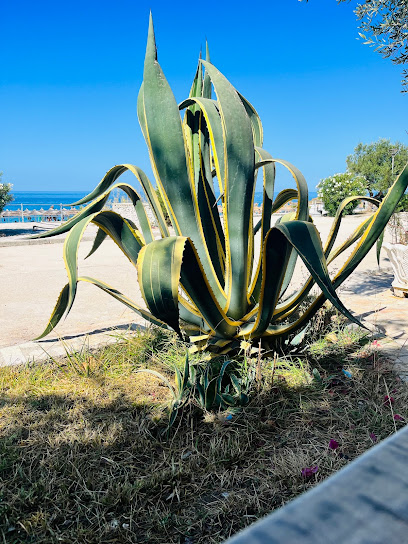
Essential bars & hidden hideouts
Havana Beach Club
Experience the ultimate beachfront escape at Havana Beach Club in Dhërmi, Albania—where sun, sea, and delightful cuisine meet.
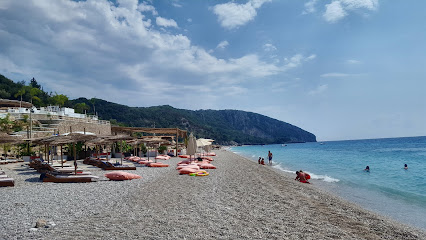
Sanur Beach House
Discover the charm of Sanur Beach House, a serene bar in Dhërmi, Albania, perfect for relaxation and enjoying stunning Adriatic views.
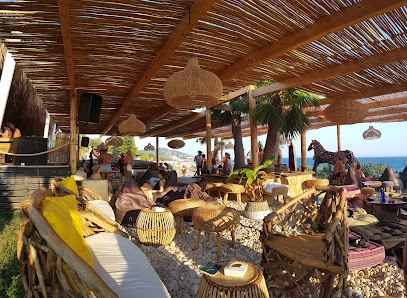
Noli's Drink
Experience the vibrant atmosphere and exquisite cocktails at Noli's Drink, a must-visit cocktail bar on the stunning beaches of Dhërmi, Albania.
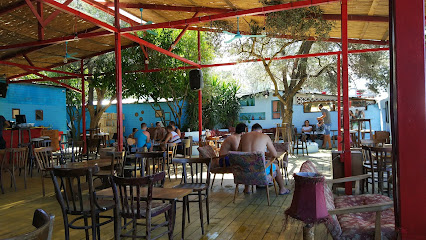
olio
Discover Olio in Dhërmi, where Italian flavors meet sushi artistry in a vibrant setting, complemented by creative cocktails and exceptional service.
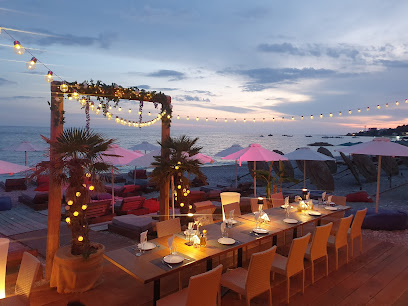
Bar Restaurant 2 Lips
Discover the flavors of Mediterranean cuisine at Bar Restaurant 2 Lips in Dhërmi, where every meal is a delightful experience.
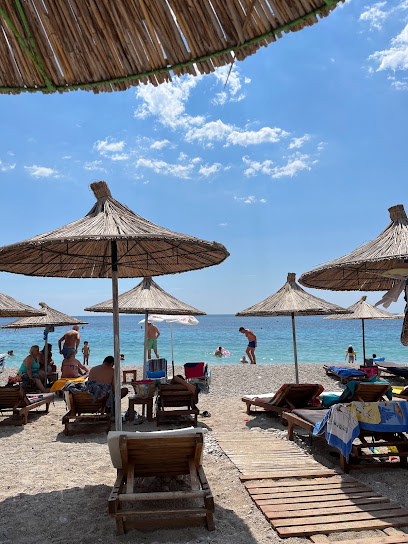
Sofia Bar
Discover Sofia Bar in Dhërmi: where vibrant nightlife meets stunning Adriatic views, and authentic Albanian hospitality awaits you.
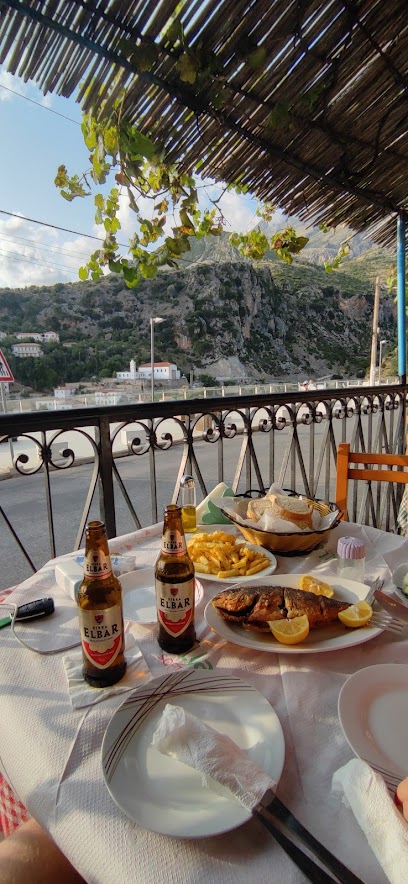
Sarajet BEACH
Discover the pristine beauty of Sarajet Beach in Dhërmi, where golden sands meet turquoise waters in a perfect Mediterranean escape.
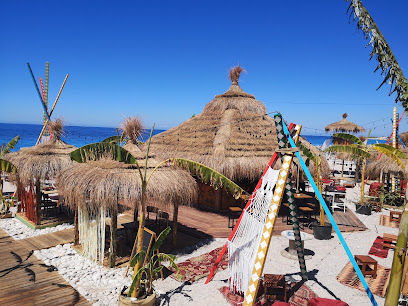
Bacarò Beach Bar
Experience the vibrant atmosphere and breathtaking views at Bacarò Beach Bar, the perfect spot for relaxation and socializing in Dhërmi.
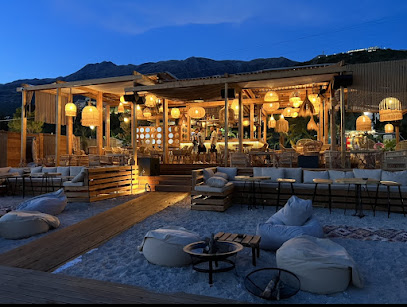
The Yacht Club
Experience a vibrant atmosphere and exquisite cocktails at The Yacht Club in Dhërmi, the perfect coastal retreat for relaxation and nightlife.
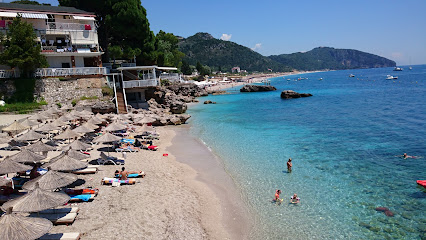
La Siesta beach bar dhermi
Discover the perfect blend of relaxation and vibrant beach culture at La Siesta Beach Bar in Dhërmi, Albania.
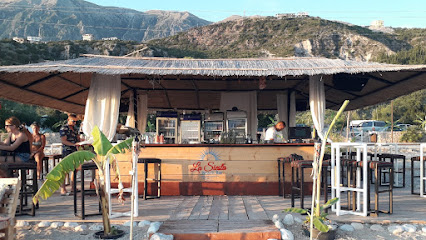
White Stone Beach
Experience the tranquil charm of White Stone Beach with its pristine waters and breathtaking scenery, a hidden gem in Dhermi, Albania.
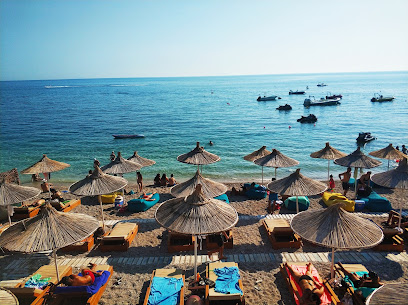
Bamboo Beach Bar
Discover the laid-back vibe of Bamboo Beach Bar in Dhërmi, a perfect spot for cocktails, local cuisine, and stunning coastal views.
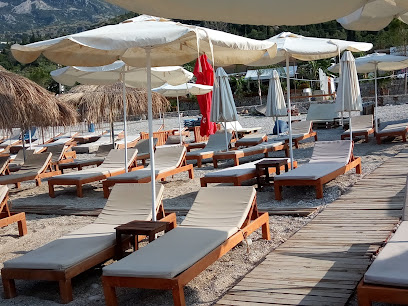
Bar 2000
Experience the vibrant atmosphere and delicious cuisine at Bar 2000, a must-visit restaurant and bar in Dhërmi, Albania.
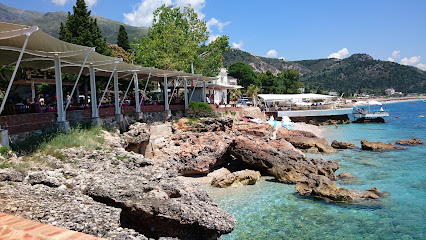
360 Sunset Bar Drymades
Experience breathtaking sunsets and artisanal cocktails at 360 Sunset Bar Drymades, a must-visit cocktail bar on Albania's stunning coastline.
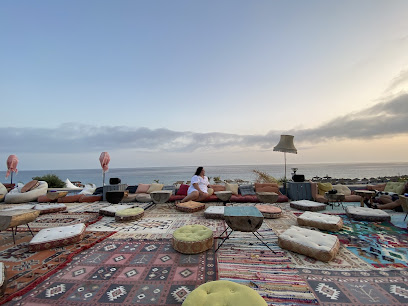
Local Phrases about Dhermi Region
-
- HelloPërshëndetje
[per-shen-de-tye] - GoodbyeMirupafshim
[meer-oo-paf-sheem] - YesPo
[po] - NoJo
[yo] - Please/You're welcomeJu lutem
[yoo loo-tem] - Thank youFaleminderit
[fa-le-min-de-reet] - Excuse me/SorryMë falni
[muh fal-nee] - How are you?Si jeni?
[see yeh-nee] - Fine. And you?Mirë. Dhe ti?
[meer deh tee] - Do you speak English?Flisni anglisht?
[flees-nee ahn-gleesht] - I don't understandNuk kuptoj
[nook koop-toy]
- HelloPërshëndetje
-
- I'd like to see the menu, pleaseDo të doja të shikoj menunë, ju lutem
[doh tuh doh-ya tuh shee-koy meh-noo-nuh yoo loo-tem] - I don't eat meatUnë nuk ha mish
[oo-neh nook hah meesh] - Cheers!Gëzuar!
[geh-zoo-ar] - I would like to pay, pleaseDo të doja të paguaj, ju lutem
[doh tuh doh-ya tuh pah-gwah yoo loo-tem]
- I'd like to see the menu, pleaseDo të doja të shikoj menunë, ju lutem
-
- Help!Ndihmë!
[ndee-muh] - Go away!Shko larg!
[shko lar-g] - Call the Police!Thirr policinë!
[theer poh-lee-see-nuh] - Call a doctor!Thirr një mjek!
[theer nje myeck] - I'm lostJam humbur
[yam hoom-boo] - I'm illJam i sëmurë
[yam ee sa-moo-reh]
- Help!Ndihmë!
-
- I'd like to buy...Do të doja të blej...
[doh tuh doh-ya tuh bleh] - I'm just lookingPo shoh vetëm
[po shoh veh-tem] - How much is it?Sa kushton?
[sah koosh-ton] - That's too expensiveKy është shumë i shtrenjtë
[ky esh-tye shoo-muh ee shtren-jteh] - Can you lower the price?A mund ta ulni çmimin?
[ah moon-d tah ool-nee chmee-meen]
- I'd like to buy...Do të doja të blej...
-
- What time is it?Sa është ora?
[sah esh-tye oh-rah] - It's one o'clockËshtë një e ora
[esh-tye nje eh oh-rah] - Half past (10)Njëzet e gjysmë
[nye-zet eh jy-sme] - MorningMëngjes
[muhn-gyes] - AfternoonPasdite
[pahs-dee-teh] - EveningMbrëmje
[mbruhm-yeh] - YesterdayDje
[djeh] - TodaySot
[sot] - TomorrowNesër
[neh-sahr] - 1një
[nye] - 2dy
[dee] - 3tre
[treh] - 4katër
[ka-ter] - 5pesë
[peh-seh] - 6gjashtë
[gya-shte] - 7shtatë
[sh-ta-te] - 8tetë
[teh-teh] - 9nëntë
[nyn-teh] - 10dhjetë
[thye-teh]
- What time is it?Sa është ora?
-
- Where's a/the...?Ku është një/a...?
[koo esh-tye nyeh/ah] - What's the address?Cila është adresa?
[chee-lah esh-tye ah-dre-sah] - Can you show me (on the map)?A mund të më tregoni (në hartë)?
[ah moon-d tuh muh tro-go-nee (nuh har-tuh)] - When's the next (bus)?Kur është autobusi i ardhshëm?
[koor esh-tye ow-toh-boo-see ee ards-hem] - A ticket (to ....)Një biletë (për ....)
[nye bee-leh-teh (pair)]
- Where's a/the...?Ku është një/a...?
History of Dhermi Region
-
Dhermi, known as Drymades in ancient times, has roots that stretch back to the Illyrians, an ancient group of tribes that inhabited the western Balkans. The region was known for its strategic location along the Adriatic Sea, which made it a significant spot for trade and cultural exchange. Artifacts and ruins from this period can still be found scattered through the region, providing a glimpse into its early history.
-
During the Byzantine era, Dhermi flourished as a part of the Eastern Roman Empire. The town became a center for Christian worship, and several Byzantine churches were constructed, some of which still stand today. The Church of St. Stephen, with its remarkable frescoes, is a prominent example of this period's architectural and artistic heritage.
-
The Ottoman Empire's expansion into the Balkans in the 15th century brought significant changes to Dhermi. The region was incorporated into the empire, and this period saw the construction of new buildings and infrastructure influenced by Ottoman architectural style. Despite the Ottoman rule, the local population maintained a distinct cultural identity, blending their traditions with those of their rulers.
-
In the late 19th and early 20th centuries, Dhermi played a role in the Albanian National Awakening, a movement dedicated to the establishment of an Albanian national identity and independence from the Ottoman Empire. Local leaders and intellectuals from Dhermi contributed to the cause, advocating for cultural and educational reforms. This period is marked by a resurgence in Albanian language and traditions.
-
Dhermi, like the rest of Albania, experienced significant upheaval during World War II. It was occupied by Italian and later German forces, and local resistance fighters played a crucial role in the liberation efforts. After the war, Dhermi came under communist rule, which led to the nationalization of properties and suppression of religious practices. Despite these challenges, the community preserved its cultural heritage in subtle ways.
-
The fall of communism in the early 1990s brought a period of transformation and revival to Dhermi. The region opened up to tourism, attracting visitors with its stunning landscapes and rich history. Efforts were made to restore historical sites and promote cultural heritage. Today, Dhermi is a vibrant destination that offers a unique blend of history, culture, and natural beauty.
Dhermi Region Essentials
-
Dhermi is located along the Albanian Riviera, approximately 220 kilometers south of Tirana, the capital of Albania. The nearest international airport is Tirana International Airport (TIA). From Tirana, you can take a bus or a taxi to Dhermi. Buses are available daily and the journey typically takes around 4-5 hours. Alternatively, you can rent a car for more flexibility and enjoy the scenic drive along the coast.
-
Dhermi is a small village, and many attractions are within walking distance. For longer trips or exploring nearby villages, local taxis are available and relatively inexpensive. Renting a car is another convenient option and allows you to explore the beautiful coastal areas at your own pace. Public buses also operate between Dhermi and other coastal villages, making it easy to travel up and down the Albanian Riviera.
-
The official currency in Albania is the Albanian Lek (ALL). Credit cards are accepted in some hotels, restaurants, and shops, but it is advisable to carry cash, especially in smaller establishments and rural areas. ATMs are available in Dhermi, but it's wise to withdraw sufficient cash in larger towns like Tirana or Vlora before traveling to more remote areas.
-
Dhermi is generally a safe destination for tourists. However, as with any travel destination, it is advisable to take standard precautions. Avoid walking alone at night in unfamiliar areas and keep an eye on your belongings in crowded places. While there are no specific high-crime areas targeting tourists in Dhermi, it is always best to stay vigilant and aware of your surroundings.
-
In case of emergency, dial 112 for immediate assistance. The local police station and medical facilities are available in nearby towns like Himara. It is recommended to have travel insurance that covers medical emergencies. For minor health issues, there are pharmacies in Dhermi where you can purchase over-the-counter medications.
-
Fashion: Do dress modestly, especially when visiting religious sites. Avoid wearing overly revealing clothing. Religion: Do respect local customs and traditions. Always cover your shoulders and knees when entering churches. Public Transport: Do be respectful and give up your seat to elderly passengers. Don’t eat or drink on public transport. Greetings: Do greet people with a handshake or a friendly 'Mirëdita' (Good day). Eating & Drinking: Do try local delicacies and accept food offerings graciously. Don’t refuse hospitality, as it is considered impolite.
-
To experience Dhermi like a local, visit the local markets where you can buy fresh produce and traditional Albanian goods. Engage with locals, as they are often friendly and willing to share stories about the village's history and culture. Don’t miss visiting the beautiful Dhermi Beach and the historic Monastery of Saint Mary. For a unique experience, take a hike to the nearby Gjipe Canyon, which offers stunning natural scenery.
Trending Landmarks in Dhermi Region
Nearby Cities to Dhermi Region
-
Things To Do in Vlorë
-
Things To Do in Gjirokastër
-
Things To Do in Saranda
-
Things To Do in Patos
-
Things To Do in Corfu
-
Things To Do in Berat
-
Things To Do in Kavajë
-
Things To Do in Ioannina
-
Things To Do in Pogradec
-
Things To Do in Durres
-
Things To Do in Tirana
-
Things To Do in Krujë
-
Things To Do in Meteora
-
Things To Do in Lezhë
-
Things To Do in Ulcinj












